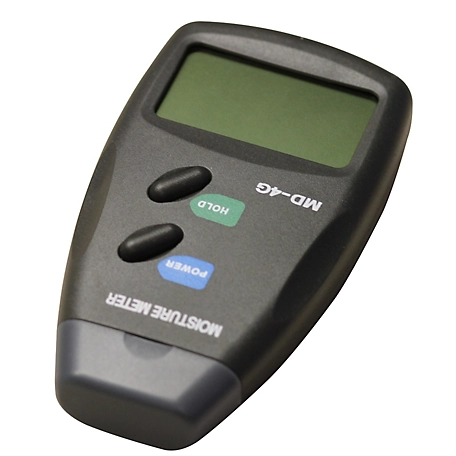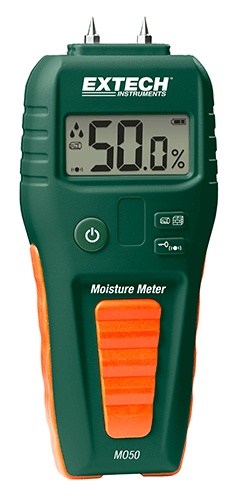The Ultimate Guide to Choosing the Right Moisture Meter for Your Needs
The Ultimate Overview to Moisture Meters: A Comprehensive Introduction and Exactly How They Can Save You Cash
In the world of building maintenance, construction, and numerous markets, the significance of accurately gauging dampness levels can not be overstated. Dampness meters offer as important tools in discovering and keeping track of moisture content in products, assisting in stopping expensive damages and making certain the top quality of products. Understanding the subtleties of different kinds of wetness meters, their applications, and the possible cost-saving advantages they provide can be a game-changer for businesses and professionals alike. Uncovering exactly how these tools can not only simplify processes yet likewise add to monetary savings is a trip worth starting.
Sorts Of Moisture Meters
One usual type is the pin-type wetness meter, which determines the electric resistance in between two pins placed right into a product. Pinless dampness meters, on the various other hand, use electromagnetic sensor plates to scan a bigger location without creating damages to the product's surface area.
Infrared dampness meters gauge the thermal properties of a product to establish its dampness content non-invasively, making them useful for applications where pin or pinless meters might not be ideal. Comprehending the different types of dampness meters readily available can aid markets choose the most appropriate device for their certain wetness measurement needs.

Advantages of Using Moisture Meters

Furthermore, using wetness meters can bring about enhanced energy effectiveness. By recognizing areas with high wetness degrees, such as leakages or poor insulation, adjustments can be made to boost power conservation and decrease energy expenses. In farming setups, dampness meters play a vital duty in optimizing plant yields by allowing farmers to check soil moisture degrees and make educated watering choices. Overall, the advantages of using moisture meters span across various sectors, giving cost-effective solutions and advertising far better quality assurance techniques.
Just How to Pick the Right Moisture Meter
Picking the appropriate moisture meter involves considering essential elements such as material compatibility, measurement range, and calibration precision. When choosing a moisture meter, it's vital to make certain that the meter appropriates for the specific product you will be screening. Different products have varying electric residential or commercial properties that can influence wetness readings, so choosing a meter designed for your product is essential for exact outcomes. Furthermore, think about the measurement variety of the wetness meter. Guarantee that the meter can find wetness degrees within the array required for your applications. Calibration precision is another essential aspect to keep in mind (Moisture Meter). Go with a moisture meter with dependable calibration to make certain exact and consistent analyses. Some meters may need routine calibration adjustments, so recognizing the calibration process is necessary. By very carefully evaluating these aspects, you can Moisture Meter choose a wetness meter that fulfills your needs and supplies exact moisture measurements for your tasks.
Appropriate Techniques for Moisture Meter Use
To ensure exact moisture analyses and make best use of the efficiency of a dampness meter, employing proper techniques is necessary. When making use of a pin-type dampness meter, put the pins or probes right into the material being evaluated until they make full get in touch with. Make sure the pins are vertical to the surface area to obtain one of the most exact analysis. For pinless dampness meters, hold the tool level versus the product and relocate slowly to cover the entire location for an ordinary reading. It's important to adjust the dampness meter according to the material being examined to enhance accuracy. Take multiple readings across the surface and typical them out for a much more trusted outcome. In addition, make certain that the material being evaluated is adapted to the atmosphere to stop skewed readings. Normal upkeep of the wetness meter, such as cleaning the pins or sensor, is additionally crucial to guarantee constant and accurate readings. By adhering to these correct strategies, individuals can rely on their dampness meter to supply credible wetness levels, assisting in protecting against pricey damage or making sure high quality in different applications.

Expense Savings Via Moisture Meter Applications
Just how can the critical use of dampness meters lead to substantial price financial savings across various sectors? In the farming market, wetness meters aid in identifying the ideal time for harvesting plants, protecting against excess or over-drying dampness that can influence the final item's high quality.

In addition, in the food processing industry, wetness meters are crucial for keeping an eye on product top quality and making certain conformity with security policies. By accurately gauging wetness web content in food, producers can stop wasting, preserve quality, and reduce waste, leading to considerable cost savings. Generally, the critical application of wetness meters is a valuable financial investment that can result in considerable price decreases and improved performance throughout numerous sectors.
Conclusion
In conclusion, moisture meters are useful devices for detecting and measuring moisture degrees in numerous products. By making use of the right moisture meter and Go Here complying with correct methods, users can effectively avoid pricey damages caused by excess dampness. Purchasing a high quality moisture meter can bring try this about significant cost financial savings in the future by identifying potential issues beforehand and enabling punctual remediation. Ultimately, dampness meters are vital instruments for keeping the honesty and long life of materials and frameworks.
Dampness meters serve as crucial tools in identifying and checking moisture web content in products, assisting in avoiding expensive problems and making sure the high quality of items. Infrared dampness meters determine the thermal residential properties of a product to identify its moisture content non-invasively, making them useful for applications where pin or pinless meters might not be suitable.Dampness meters use invaluable benefits in accurately examining and keeping an eye on moisture levels in diverse products and environments. In farming setups, wetness meters play a vital duty in maximizing crop yields by making it possible for farmers to keep track of soil wetness levels and make informed irrigation choices.In final thought, wetness meters are beneficial devices for measuring and discovering moisture degrees in various materials.